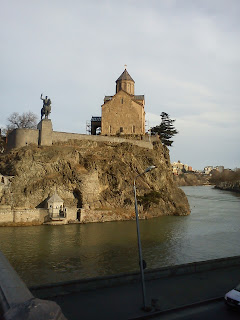Planning an ecotourism destination (good for all!)
Ecotourism and
sustainable tourism represent a very viable option for rural areas, for
developing countries or regions. If, for example, mass seaside tourism in the
last half of the XIX centuries required significant investments, overbuilding,
concreting, and the most attractive destinations were those that offered
standardized and high-level services, the demand in sustainable tourism is satisfied
with the authenticity of the destination.
In a word: you
don’t need to build a 300 room hotel to launch an ecotourism destination.
As for the
quality of the services, of course the rule is that tourists should be offered
the best possible. Still, the average eco-tourist is willing to accept
inconvenient and small disruptions more than the demanding average mass tourist,
if these are understandable and commensurate with the socio-environmental
context of the destination.
If a locality
therefore holds a potential in terms of uniqueness and authenticity,
attractiveness and willingness to pursue the mission to create a viable sustainable
tourism offer, it could become a tourist destination, better if located in an
area that already has a tourist identity in which it can fall or which it can
contribute to differentiate. The richness of the offer can be upgraded if
nearby there’s a famous or potentially such “sister destination”.
One huge
requirement is transportation and reachability. While jungle tourists and travelers
are ready to invest a significant rate of their time in just moving from a spot
to another, of for reaching the tourism destination, normally tourists
comparing the worth of the trip to the one of the destination, when choosing.
Ecotourism destinations
like any other destination must be reachable at least in a time that is
proportional to the average length of stay. That is to say: even one entire day
if the stay is medium-long, a few hours if it is a weekend, approximately.
The revitalization of an area through eco-tourism brings to the fore
activities and professions often dismissed as marginal, if not bordering
underemployment: Activities that take place on a territory, but “they are not
real jobs", for example picking and preserving herbs, flowers, fruits,
fibers, substances for food or pharmaceutical use, or textiles, or crafting small
decorations.
The truth is that nature stewards like gatherers of herbs played an important
role not only in human history but also in local ecosystems. They are the
guardians and the monitors of a territory. Their activities contribute to keep
the treks clean, to keep in balance species, to overview the state of the
earth, comparing one season with another. They are therefore also the historical
memory of a part of the territory and the soil.
In some places gatherers carry out an additional monitoring action, where
there is a planned and implemented territorial control systems, in some places
they represent the only resource.
The work of these local gatherers in a tourist destination turns into a
source of interest. Visitors can be involved in the activity or become
recipients of the raw materials collected or of their final products (oils,
natural products, food) all in full respect of traditional acts.
Some of these traditions and activities without the prospect of an
additional profit offered by the tourist presence would be abandoned, depriving
the territory of savvy guardians and regulators whose presence has contributed
to the natural balance for centuries.
We cannot idealize the nature around us: in most parts of the world,
especially those populated since long time by numerous human communities,
nature is not as wild as urban dwellers wish to believe. Our natural landscape
is often the product of centuries of human presence. Assuming that leaving it
on its own is a wise step might prove to be a huge mistake. Forests fallen in
disuse might suffer from the lack of watchful eyes of gatherers. Tourism can
help to keep them safe and healthy :-)


Commenti
Posta un commento